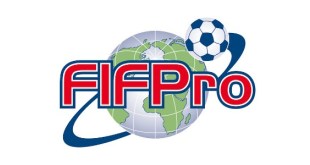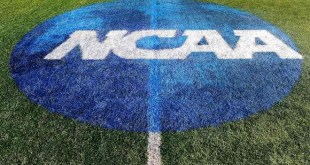Initial eligibility is a good idea in principle that currently faces many flaws. The process is great in hindsight but doesn't allow much time to correct deficiencies, and is especially hard on international prospects. While academic certification is far from perfect for a small number of freshman student-athletes, a few simple changes might make initial eligibility exponentially better.
Read More »What is FIFPro Doing? -From Their Perspective
Yesterday in Belgium, FIFPro, the world football (soccer) players’ union, filed a competition law complaint with the Directorate General Competition of the European Commission against FIFA in an attempt to challenge the movement of players.[i] FIFPro is denouncing the Regulations on the Status and Transfer of Players (RSTP) as anti-competitive and illegal, preventing smaller clubs from competing, limiting player rights, and failing the future growth and success of the sport.
Read More »Punting or Prudence: The NLRB Decision on Northwestern
On Monday, August 17, 2015, the National Labor Relations Board ruled against Northwestern football players on athletic scholarship, preventing them from forming a union. First, this decision did not rule as to whether or not they considered the student-athletes employees. What the NLRB decided is that it would decline jurisdiction on the matter, for not falling within the confines of the National Labor Relations Act.
Read More »Barcelona’s Two-Window Registration Embargo
After Barcelona has completed the signing of two players this summer, you may be asking yourself how transfers can happen into a club while it is under a transfer ban. The real ban isn’t from bringing in new players, but in the ability to register them as an active member of the team and have them eligible to participate in competitive matches.
Read More »The Enterprise: FIFA’s Rampant Corruption Exposed
Following an extensive investigation, the United States Department of Justice indicted fourteen individuals from FIFA and sports marketing companies on charges of racketeering, wire fraud and money laundering conspiracies, and other related offenses. These individuals were all high-ranking officials and executives who participated in two decades of bribery and kickbacks, turning FIFA into a criminal enterprise for their own gain.
Read More »The NCAA’s Ill-Defined Role in Academic Fraud Cases
Academic misconduct in the NCAA has become a bit of a hot button issue in the last decade, as the NCAA is categorizing academic improprieties as an impermissible extra benefit. When looking at academic fraud involving NCAA student-athletes, the million-dollar question is “What should the NCAA’s role be in assessing and punishing academic fraud?”
Read More »SILAS NACITA: WHEN ELIGIBILITY DECISIONS BREAK SOCIAL MEDIA
Today, the NCAA “declared” a Baylor football player ineligible for accepting housing, or at least that’s what was initially reported. After some time couch surfing and failing to find a concrete home, a concerned friend offered to help by providing an apartment. This provided apartment became the center of allegations of extra benefits. But is there more to the story?
Read More »The Conveniently Timed Barcelona Trade Embargo
In April, FIFA sanctioned FC Barcelona for violating regulations regarding the international transfer and registration of minors (U-18 players). Barcelona originally appealed FIFA’s decision, during which the FIFA Appeal Committee granted a stay of the initially imposed transfer ban. All aspects of FIFA’s initial ruling were upheldon Wednesday, including fines and a transfer ban that will prevent the club from signing any players in the next two windows (January 2015 and Summer 2015). While the decision has finally arrived, how much affect will it actually have? The FIFA Appeal Committee delayed the ban just late enough for Barcelona to get a majority, if not all, of the club’s current transfer business done for the upcoming season.
Read More »A New (and Improved?) NCAA Governance
In a landmark 16-2 vote today, the NCAA Division I Board of Directors voted to give the Power Five Conferences (the 65 schools of the ACC, Big 12, Big Ten, PAC-12, and SEC) more autonomy and the ability to make their own decisions over certain aspects of the collegiate model.[i] These conferences will now be able to initiate legislative changes of their own, which could start as soon as October 1 to get into the legislative cycle for April voting.
Read More »Hungry for Victory: Luis Suarez Strikes Again
On Wednesday, FIFA announced that it has charged Uruguay forward Luis Suarez with biting an Italian opponent and has opened disciplinary proceedings in the incident. What are the possible penalties? What is the precedent? Sean Dotson explains.
Read More » The Sports Esquires Putting Sports on Trial
The Sports Esquires Putting Sports on Trial




